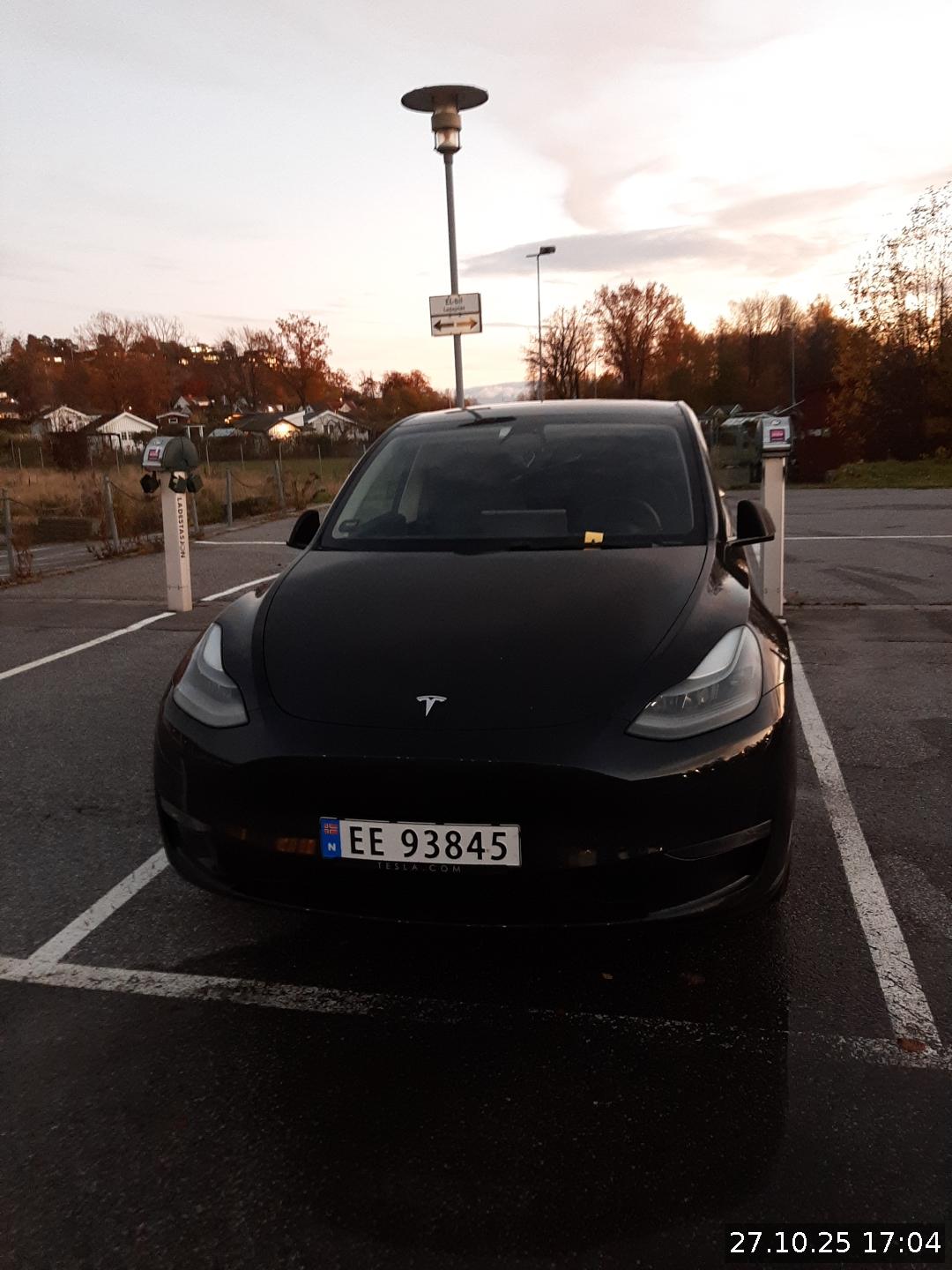Aimo Park Norway AS receives complaints from drivers all over the country. Nettsak's review of a specific case from Sandefjord shows why: The charging system didn't work, but the fine still stood. The complaint is handled in a closed system without acknowledgement or access - by a lawyer who signs emails with an abbreviated name. The case raises questions about transparency, legal certainty and ethics in private parking.
This is how it started

What began as a seemingly simple parking fine in Sandefjord has developed into a question of legal certainty and consumer protection. Håkon Berntsen was fined NOK 660 by Aimo Park Norway AS - at a time when charging was not possible.
According to the notice, the fine was issued at 17:01, i.e. one hour after the ordinary charging period (08:00-16:00) had ended. The car was parked at a charging point, but the pole was not supplying power. The sanction was nevertheless given for «failure to charge». Berntsen repeatedly tried to start charging via the EasyPark app, which registered the start-up, but power never arrived. A new test almost a week later showed exactly the same error.
«I tried to charge, with no effect. Now I see that the same error still occurs. This means that Aimo Park knows about the error, but still continues to fine people here.»Håkon Berntsen, to Nettsak
Several local sources state that charging in the same area has been problematic «for a long time, especially in the evenings». In the inspector's photos, the area appears to be without lighting at the charging points - which substantiates power deviations.
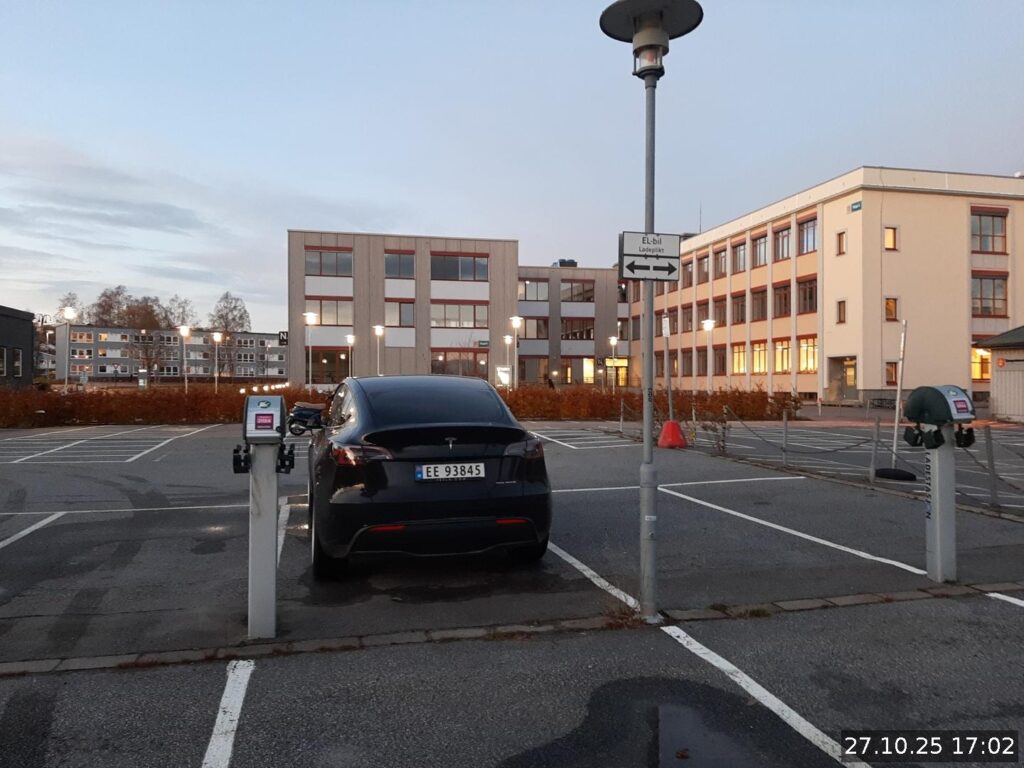
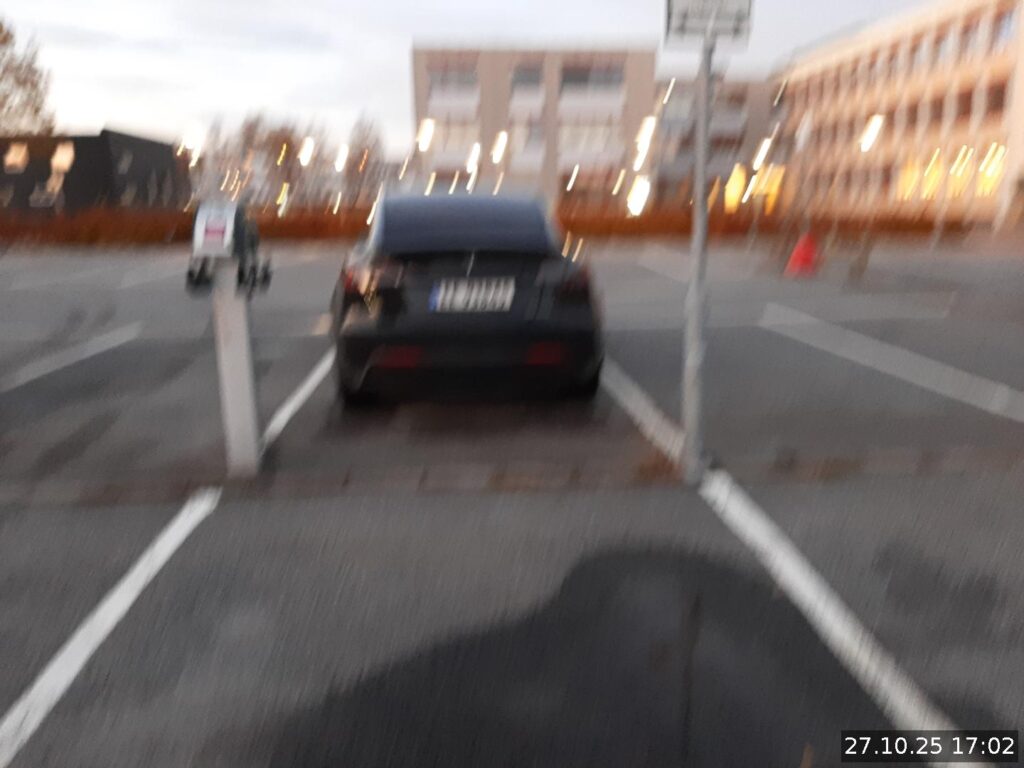
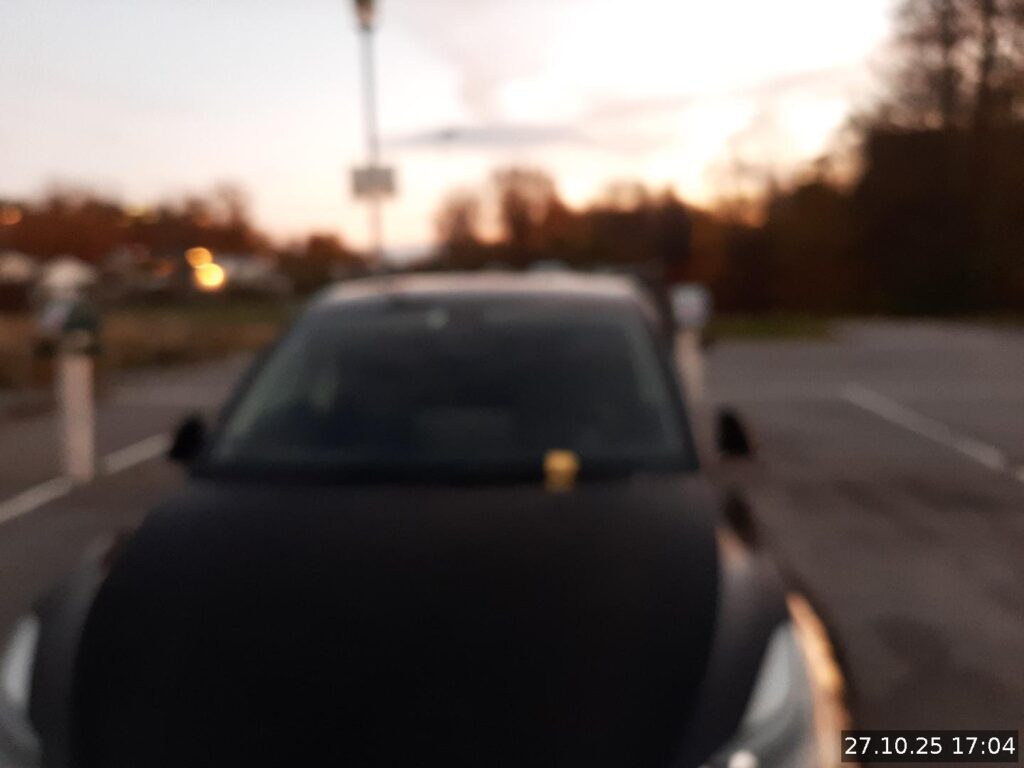
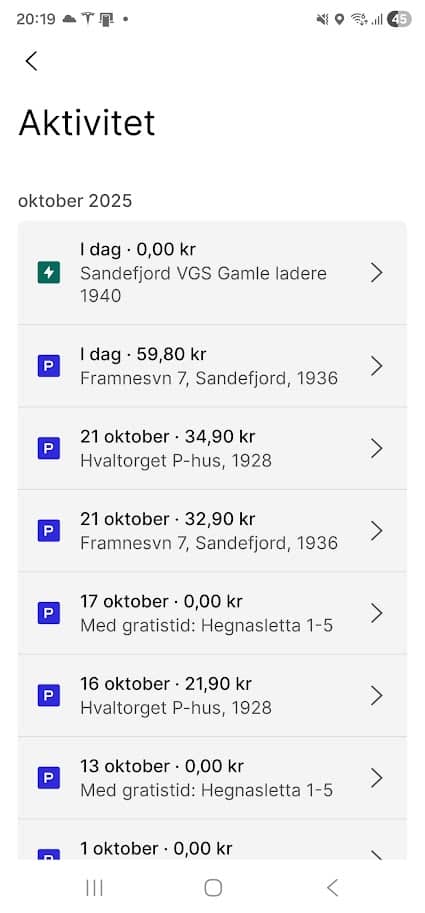

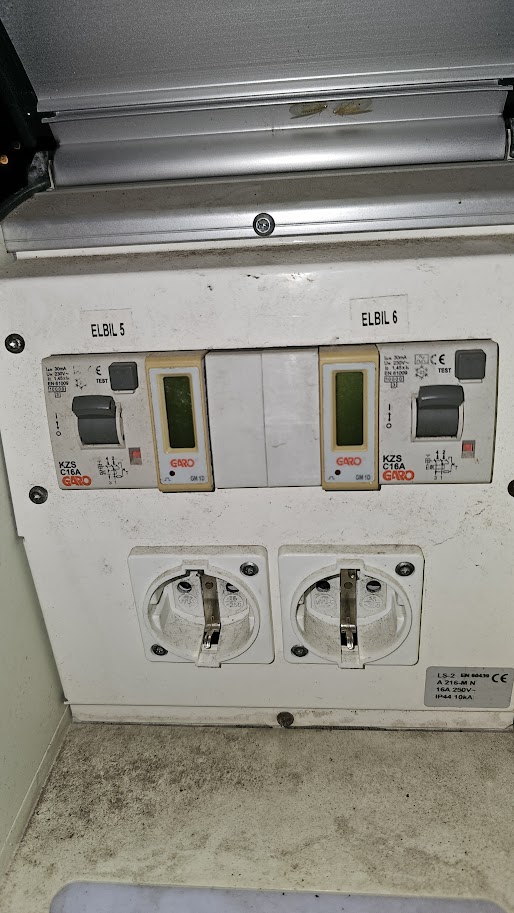
Field observation: Charging is still not working
In order to verify the facts, Nettsak conducted a new test one week after the charge was imposed. EasyPark registered that charging was started, but the pole did not deliver any power. Light indicators remained dark, and there was no measurable power consumption in the app. There was no barrier or notification that the pole was out of service.
Documentation:
- Photo of charging point without lights/power indicators
- Screenshots from EasyPark showing «charging started» without registered consumption

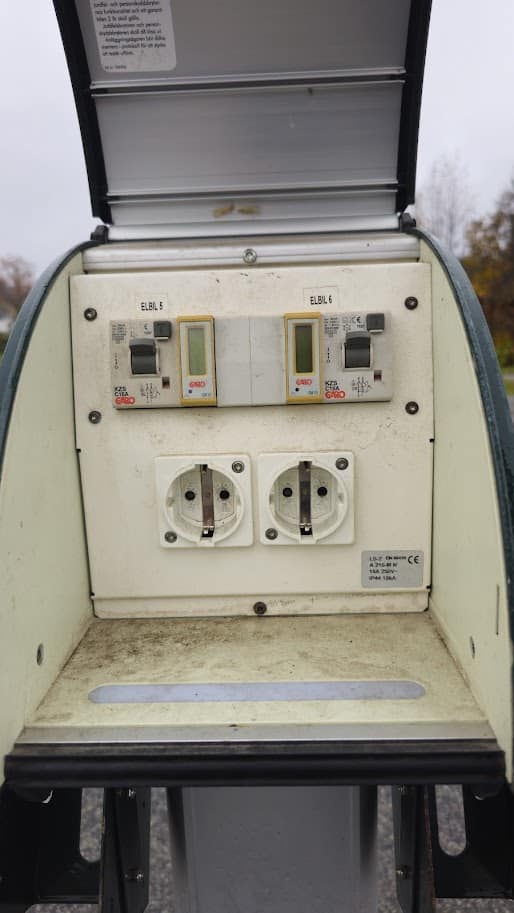
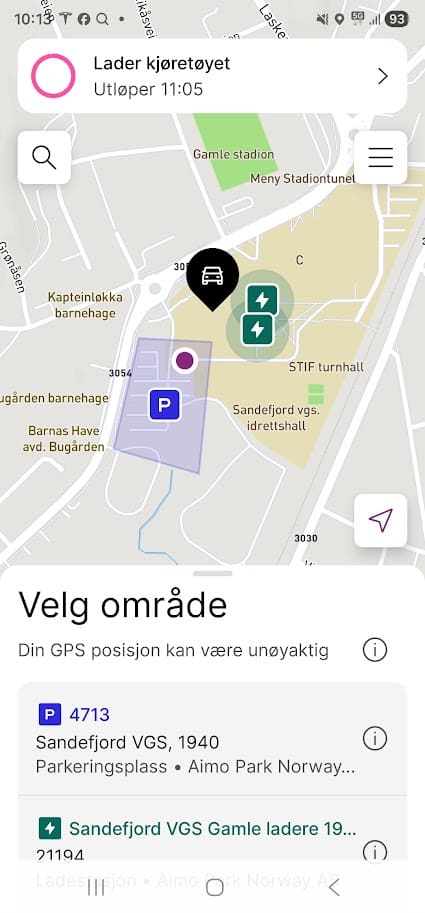
Correspondence: The emails that draw the profile
Berntsen contacted Aimo Park both as a private complainant and in editorial preparation for Nettsak. The correspondence shows:
- Signature practice: Emails are signed «Magnus S.» (operations manager/lawyer), not full name. Justified by «privacy and security».
- Treatment track: The company treats the inquiry as a private complaint - even when it comes from Nettsak - and states that the processing time is approximately six weeks.
- Missing receipt: When submitting a complaint via the online form, a confirmation/copy is not automatically sent to the complainant.
- Collection under complaint: Customer service states that cases «may end up in debt collection» even during processing, and that this will be «sorted out» if the customer contacts them.
Anonymized signatures, the absence of receipts/access and the risk of debt collection during processing weaken verifiability and the consumer's position.
Regulations: What applies to complaint handling?
Although Aimo Park is not an administrative body, important principles similar to those of the public administration apply: proper case processing, equal treatment, adversarial proceedings, documentation and access. For the private imposition of a control sanction, in particular Parking Regulations §§ 44-45 relevant.
- § 44: Right of appeal when the penalty is believed to be in violation of the regulations. Complaints are first processed by the company.
- § 45: The case can be taken to the Parking Complaints Board (free of charge for consumers).
The company must be able to document the basis for the decision (signage, marking, time, technical status, inspector's photos/notes and relevant conditions). Without documentation of functioning equipment at the time of the inspection, the imposition is weak in the eyes of the Board.
Patterns in practice: What does the feedback say?
Nettsak has reviewed publicly available sources (Google reviews, Trustpilot, app reviews, media cases, the Consumer Authority's decisions) that collectively point to a pattern:
- Overwhelmingly negative publicity: 1.1/5 stars (266 Google reviews). Trustpilot around 1.4/5 with clear majority one-star. App reviews describe technical errors and poor customer service.
- Long processing time and missing receipt: A number of people report that the complaint form does not provide email confirmation, and that responses are not received for weeks.
- Rejected in the first instance - later upheld: Tribunal practice shows that cases are often rejected by the companies and later upheld by the Parking Appeals Board.
- Technical failure without liability: Cases of defective vending machines/charging points at the same time as a fee is imposed.
- Debt collection in process: Customers receive debt collection notices before the complaint has been processed.
The picture that emerges is of a system where consumers are pressured to «pay and move on» because the time cost of appealing exceeds the fee, even when the grounds are weak.
Consequences for the consumer and society
When the same company both imposes the sanction and assesses the complaint, a built-in conflict of interest arises. The consumer is at a disadvantage, and the threshold for complaining increases. Cases that go to debt collection during processing reinforce the imbalance and can lead to non-payment before the actual processing is completed.

The effect on society is weakened confidence in the parking system. When private actors exercise government-like functions without corresponding transparency and documentation obligations, legal certainty is undermined.
What now - the specific case
Complaint handling at Aimo Park is ongoing. If the appeal is rejected, the case will be brought before the Parking Appeals Board. The following documentation is available:
- Photo documentation of defective charging point (missing power/indicators)
- Screenshots from EasyPark (attempted charging without registered consumption)
- E-mail correspondence with complaints department/customer service
- Information about regular controls in the area despite deviations at charging points
Inquiries to landowners and authorities
Nettsak has contacted Sandefjord upper secondary school and Vestfold County Council as the landowner/responsible for the facility regarding operation, maintenance and handling of deviations.
Possible precedent
If a complaint is upheld as a result of a malfunction in the charging system, it may have an impact on similar cases nationally.
How to complain - practical guide
- Documents on site: Photo of car, signage, vending machines/charging points, lighting conditions and time. Screenshots from app when attempting to charge/pay.
- Send a written complaint within 3 weeks: Use the form/email and make a copy of everything. Save the screenshot that proves the submitted complaint when the system does not send a receipt.
- Demand access: Request the inspector's photos/notes, area description, app log and technical status.
- Don't be pressured by debt collection: Show in writing that the complaint is being processed. Collection prior to substantive processing is irresponsible.
- Take the matter further: If the complaint is rejected, send it to the Parking Complaints Board (free of charge).
- Assess the principle value: Small amounts can have a big impact on practice. Documented decisions can change routines.
Useful resources: Parkeringsklagenemnda, Parkeringsforskriften §§ 44-45, Forbrukerrådet, Forbrukertilsynet.
Concluding
This is about more than one fine and one defective charging point. When private companies both impose and process sanctions without real independence and without robust transparency, consumer rights and trust in the system are weakened. Transparency, documentation and verifiability must be minimum requirements.
Do you have your own experiences?
Have you had similar experiences with Aimo Park Norway AS or other parking companies? Nettsak wants to hear from you. Send documentation/experiences to [email protected]. Inquiries are treated confidentially.
Further follow-up
Nettsak will follow Aimo Park's handling of the complaint, any board assessment and the response from the landowner/authority. Aimo Park Norway AS has been informed of the article and invited to submit a response/comment. Any response will be published unedited.
FACTS: Aimo Park Norway AS
- Organization number: 946 359 106
- Address: Ole Deviks vei 6 C, 0666 Oslo, Norway
- Telephone: 21 00 76 70
- Established: 1987
- Employees: 144
- Total operating income (2025): 899 432 000 ENOUGH
- Profit before tax (2025): 40 968 000 NOK
- EBITDA (2025): 51 259 000 NOK
- Solidity: 30,1 %
- Eggs: Aimo Holding AB (100 %)
- General Manager: John Lien (b. 1969)
- Chairman of the Board: Hans Felix Junior Fuchs (b. 1987)
- Auditor: KPMG AS
- Source: Brønnøysundregistrene
Update November 6, 2025
After the publication of this case, Aimo Park Norway AS has apologized for the incident and offered to cancel the relevant control sanction.
Håkon Berntsen (party to the case) has personalized chosen to reject the offer of immediate shredding, and would like the complaint to be processed in accordance with the ordinary procedure, cf. Section 44 of the Parking Regulations. The purpose is to ensure full transparency and documentation of the process, as well as to avoid any doubt that media coverage may have affected the outcome.
Any final decision from the appeal process will be discussed in a follow-up case.

